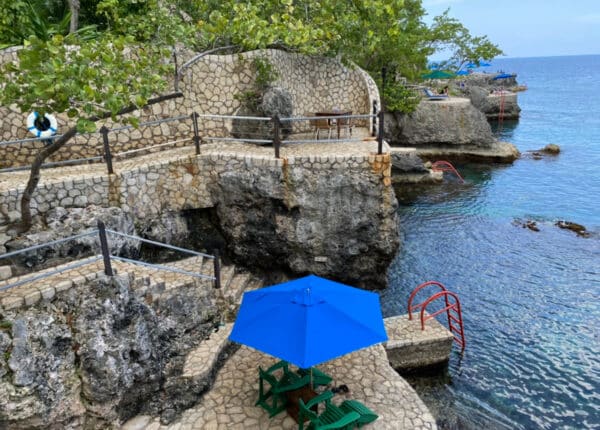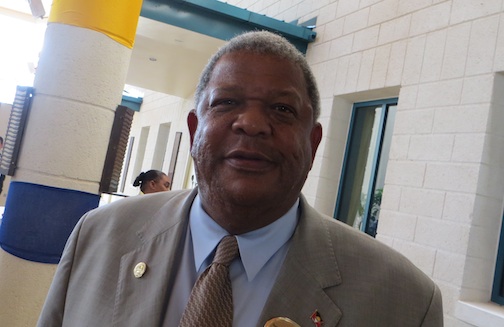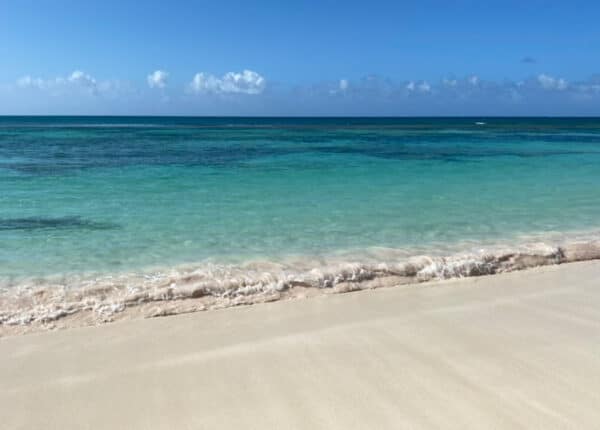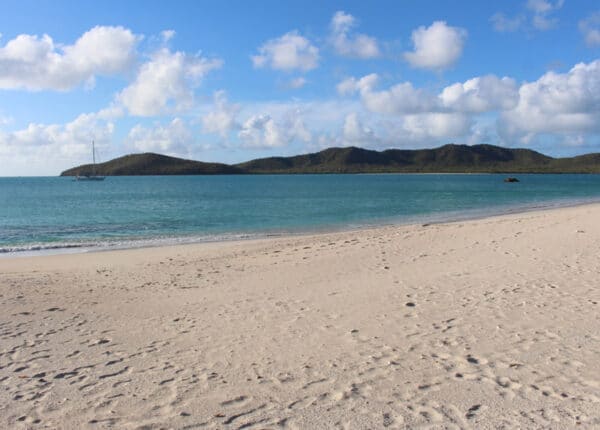Interview with Antigua and Barbuda Prime Minister Baldwin Spencer
Above: Prime Minister Baldwin Spencer (CJ Photo)
By Alexander Britell
BRIDGETOWN — Prime Minister Baldwin Spencer and his United Progressive Party have led Antigua and Barbuda’s government since 2004, when, as leader of the opposition, he unseated the Antigua Labour Party. Spencer has also been the country’s Foreign Minister since 2005, and has made diplomacy a priority, both in dealings with Latin America (in 2009, Antigua joined Venezuela’s ALBA alliance) and, more recently, with China. The latter has become one of Antigua’s major partners, pouring significant funding into new projects in the twin-island state. To learn more about foreign policy issues for Antigua and the region, Caribbean Journal talked to Spencer at the CARICOM-Mexico Summit about Latin America, the country’s partnership with China and the future of CARICOM.
What is the significance of relations with Mexico for the Caribbean?
Well, the relationship is extremely important for CARICOM member states. Over the past two decades or so, we have sought to strengthen and deepen that relationship. As you know, Mexico regards itself, in a way, as a Caribbean country, as well, so we have been seeking to develop modalities that could lead to the strengthening and deepening of that relationship. Of course, especially at this time, where the economic situation worldwide is far from satisfactory, and Mexico has demonstrated over the years that it is a country that is moving in a particular direction, there are lots of things we can learn from the Mexican experience. As you know, they have gravitated to being part of the G20. As it stands right now, they are the chairman of that august body. And we believe that Mexico can play a positive role in presenting the case on behalf of CARICOM member states through the G20. So far, it has done that, and we are trying to find ways and means to allow for Mexico to be able to do even more of that, and to encourage some of its G20 members to do likewise. In addition to that, at a bilateral level each member state has, over the years, developed trading and other links with Mexico. But we want to ensure that as we move forward at the CARICOM level, we have a deeper and more lasting relationship with Mexico as we seek to develop relations at various levels — we do collaborations at the OAS level, we have collaboration now with some other institutions that we recently created, like CELAC and so on, and Mexico plays a very, very key role in these hemispheric institutions.
How much is Latin America and important frontier for the Caribbean?
It’s extremely important. And we feel very strongly that, going forward, the alliances that could be developed between Caribbean and Latin American countries could do very positive things for the entire hemisphere. So the idea is to come closer together, utilize both natural and man-made resources, human resources, and the deployment of those resources for the benefit of the people of the hemisphere. And that’s very important going forward. What we want to be able to do is to link into Latin America a lot more from a Caribbean perspective, and similarly, Latin America investment opportunities in various way. We believe that a lot more can be achieved if we are able to collaborate and cooperate more.
Asia seems to be an increasingly important market for the region. Antigua and Barbuda has developed a very strong relationship with China – what have you learned from that relationship and what can the Caribbean do to capitalize on it?
Clearly, this is part of the entire strategy. Our relationship with China, from an Antiguan and Barbudan point of view, has been very positive and very productive, and I’m quite sure that other member states in CARICOM would conclude similarly. And we believe that our relationship with Latin American countries, not only Mexico, but others, will lead also to that positive scenario. And that is what we’re seeking to develop.
What are your biggest priorities right now on the domestic front?
It’s to resolve some of the economic issues that we face. We are small, very vulnerable member states in this scenario, and we are impacted greatly by what happens elsewhere, especially in the developed countries. And if their economies are not doing very well, we are likely to be affected by that. At the same time, however, we have to grapple with our own challenges, and try to see how best we can improve the situation as far as employment opportunities, our ability to deliver social services, particularly to the most vulnerable in society, and to ensure that the economy is kept on the right path, and that we deliver for the people of Antigua and Barbuda. Right now, it’s difficult – very challenging. But we believe that we are working earnestly to ensure that we achieve the objective.
What kind of progress do you see for Caribbean integration, and what kind of progress would you like to see?
Well, with Caribbean integration, we’re still on course. Of course, we’ve perhaps not achieved at the CARICOM level what we think we would have achieved by now, but, comparatively speaking, with the progress that we have made over the years in terms of integration movements, we can look back with some degree of satisfaction that we have come a long way. It is not over yet. The deepening and strengthening of the integration movement at the CARICOM level is still there to be achieved. At the sub-regional level, I would want to think that we are making some more progress. At the level of the OECS, we have embarked upon this economic union between OECS member states, and are making some real progress there. As a matter of act, we will be having the inauguration of the OECS Parliamentary Assembly on the 15th of June in Antigua, and that is a major development — extremely historic. And so the integration movement in the Caribbean is moving ahead. I suppose one could say there are different success levels between CARICOM and the OECS, but it is all part of a movement, and we believe that, to the extent that we are successful at what we’re doing at the OECS, that will lead to ultimate success at the CARICOM level.







